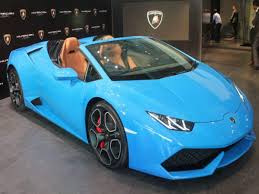NEW DELHI, Jan 17: Luxury car makers Mercedes-Benz, Audi and Lamborghini expect the government to lower taxes on automobiles in the upcoming Budget, saying the premium segment of the auto industry has not been able to grow due to high taxation besides being hit hard by coronavirus.
Any hike in taxes on luxury cars will hit demand and prevent recovery from the disruptions witnessed last year, according to senior officials of the companies.
“Anything which is a deterrent to the demand in the sector we should stay away because at the end that will cause problem,” Mercedes-Benz India Managing Director & CEO Martin Schwenk told PTI.
He was responding to a query on the company’s expectations on the tax front from the government in the upcoming budget.
Seeking a reduction on taxes on the auto sector, Schwenk said, “Already the auto industry is highly taxed…From the import duties to GST and cess which is 22 per cent (on luxury cars). I think the target should actually be to support the growth of the sector and reduce tax. We should try find an avenue.”
Expressing similar sentiments, Audi India head Balbir Singh Dhillon said the challenges for the luxury car segment, which is recovering from the COVID-19 induced disruptions, in 2021 are “more or less the constants from the past”.
“One is of course the high taxation on luxury cars, including cess. That remains a challenge because what it has done is that it has not let luxury cars grow beyond 1 per cent (of the total automobile markets in India). It is just hovering around 1 per cent and in last year 2020 it could have dropped probably 0.7-0.8 per cent. That (high tax) remains the biggest challenge,” he added.
Lamborghini India Head Sharad Agarwal said the expectation of the super luxury segment players from the government is to maintain a consistency because the segment has suffered a lot in 2020.
“We want the segment to at least bounce back to 2019 level in 2021. We are still not expecting growth to come back but we want to touch 2019 level in the segment. If there is any change (increase) in the tax structure in the segment it is going to hit the segment very negatively,” he added.
Agarwal further said, “In the last three years, we have seen a consistency there and we anticipate the government should maintain the consistency. Let the segment comeback to normal and growth trajectory.”
Taxation is one big factor which is affecting the growth of the sector and the current sales numbers do not reflect the potential of the country and any increase in taxes will impact growth, he added.
At present, automobiles are taxed at 28 per cent GST with additional cess ranging from 1 per cent to 22 per cent depending on the type of vehicle. Cars imported as completely built unit (CBU) attract customs duty ranging between 60 per cent and 100 per cent depending on engine size and cost, insurance and freight (CIF) value being less or above USD 40,000. (PTI)
Trending Now
E-Paper


